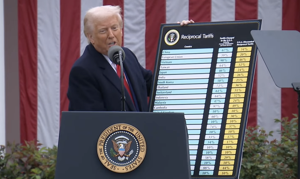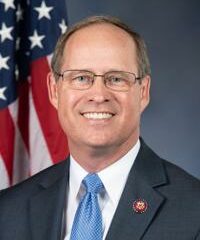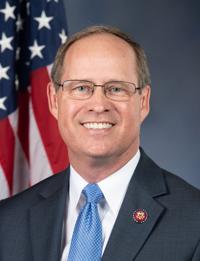In May, Minnesota became the 23rd state to legalize recreational marijuana use. After decades of activism, marijuana users and advocates are finally seeing a large-scale relaxation of marijuana restrictions at the state level. The District of Columbia and Guam have also legalized recreational pot.
THC, one of the psychoactive compounds in marijuana, can cause euphoria when smoked or ingested, though it can also cause anxiety. Besides smoking for pleasure, many use marijuana for medical reasons, including the relief of chronic pain, insomnia, nausea, tremors associated with Parkinson’s Disease, and anxiety. Another active compound in marijuana is CBD, which is purported to carry some of the same medical benefits without causing the associated high. (Take a look at these foods and drinks enhanced with CBD.)
For the states that have legalized cannabis use, marijuana has been a boon for government coffers. Many states with fully operational marijuana programs brought in tens of millions of dollars in tax revenue off of cannabis sales in 2021. California reported marijuana tax revenue in excess of $1 billion that year.
Despite its federal status as a controlled substance, people across the country have used marijuana on a regular basis, and continue to do so.
According to the Substance Abuse and Mental Health Services Administration, 383,000 people in Mississippi aged 12 and up have reportedly used marijuana in the last year – or 15.6% of the 12 and older population, the 12th lowest usage rate among states.
Marijuana’s legal status is mixed in Mississippi but it is permitted for medicinal purposes and recreational use has been decriminalized.
All data on marijuana usage rates is from the 2021 National Survey on Drug Use and Health, published in March 2023. The legal status of marijuana use in each state, last updated on July 1 2023, came from DISA, a third-party administrator of drug and alcohol testing, background screening, and more for employers.
| Rank | State | Share of residents age 12+ who have used marijuana in past year ($) | Residents age 12+ who have used marijuana in past year | Legal status in state |
|---|---|---|---|---|
| 1 | Vermont | 30.8 | 175,000 | Fully Legal |
| 2 | Oregon | 28.8 | 1,052,000 | Fully Legal |
| 3 | Alaska | 27.0 | 158,000 | Fully Legal |
| 4 | Washington | 25.9 | 1,691,000 | Fully Legal |
| 5 | Massachusetts | 25.6 | 1,552,000 | Fully Legal |
| 6 | Maine | 24.8 | 298,000 | Fully Legal |
| 7 | Nevada | 24.8 | 659,000 | Fully Legal |
| 8 | Colorado | 24.7 | 1,217,000 | Fully Legal |
| 9 | Michigan | 24.7 | 2,118,000 | Fully Legal |
| 10 | Rhode Island | 24.2 | 229,000 | Fully Legal |
| 11 | Oklahoma | 24.2 | 794,000 | Mixed |
| 12 | New Mexico | 22.8 | 406,000 | Fully Legal |
| 13 | Arizona | 21.9 | 1,348,000 | Fully Legal |
| 14 | Montana | 21.6 | 203,000 | Fully Legal |
| 15 | New York | 21.1 | 3,578,000 | Fully Legal |
| 16 | Illinois | 21.0 | 2,247,000 | Fully Legal |
| 17 | California | 20.8 | 6,886,000 | Fully Legal |
| 18 | Connecticut | 19.9 | 619,000 | Fully Legal |
| 19 | Ohio | 19.6 | 1,947,000 | Mixed |
| 20 | Iowa | 19.3 | 519,000 | Mixed |
| 21 | Delaware | 19.2 | 164,000 | Fully Legal |
| 22 | Maryland | 19.1 | 988,000 | Fully Legal |
| 23 | Louisiana | 19.0 | 727,000 | Mixed |
| 24 | Kansas | 19.0 | 459,000 | Fully Illegal |
| 25 | Indiana | 18.6 | 1,062,000 | Mixed |
| 26 | Missouri | 18.6 | 963,000 | Fully Legal |
| 27 | Minnesota | 18.6 | 893,000 | Mixed |
| 28 | New Hampshire | 18.5 | 225,000 | Mixed |
| 29 | Virginia | 18.0 | 1,304,000 | Fully Legal |
| 30 | Pennsylvania | 17.5 | 1,934,000 | Mixed |
| 31 | Wyoming | 17.2 | 84,000 | Fully Illegal |
| 32 | Georgia | 17.2 | 1,546,000 | Mixed |
| 33 | Wisconsin | 16.6 | 834,000 | Mixed |
| 34 | Tennessee | 16.6 | 975,000 | Mixed |
| 35 | West Virginia | 16.6 | 253,000 | Mixed |
| 36 | North Dakota | 16.5 | 105,000 | Mixed |
| 37 | New Jersey | 16.3 | 1,285,000 | Fully Legal |
| 38 | South Carolina | 15.6 | 687,000 | Fully Illegal |
| 39 | Mississippi | 15.6 | 383,000 | Mixed |
| 40 | Arkansas | 15.6 | 393,000 | Mixed |
| 41 | Idaho | 15.3 | 242,000 | Fully Illegal |
| 42 | Kentucky | 15.2 | 573,000 | Mixed |
| 43 | Florida | 15.0 | 2,805,000 | Mixed |
| 44 | Hawaii | 14.9 | 175,000 | Mixed |
| 45 | Nebraska | 14.4 | 233,000 | Fully Illegal |
| 46 | North Carolina | 13.7 | 1,219,000 | Fully Illegal |
| 47 | South Dakota | 13.7 | 100,000 | Mixed |
| 48 | Utah | 13.3 | 361,000 | Mixed |
| 49 | Alabama | 12.7 | 537,000 | Mixed |
| 50 | Texas | 12.6 | 3,066,000 | Mixed |















































